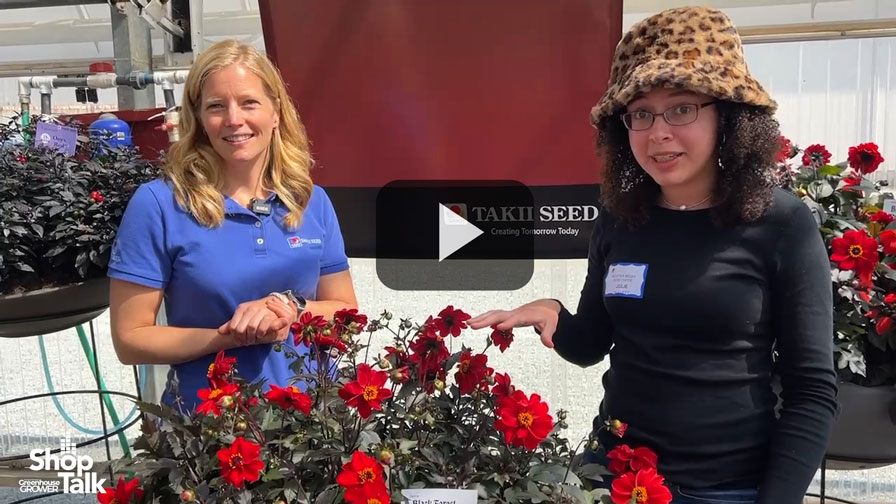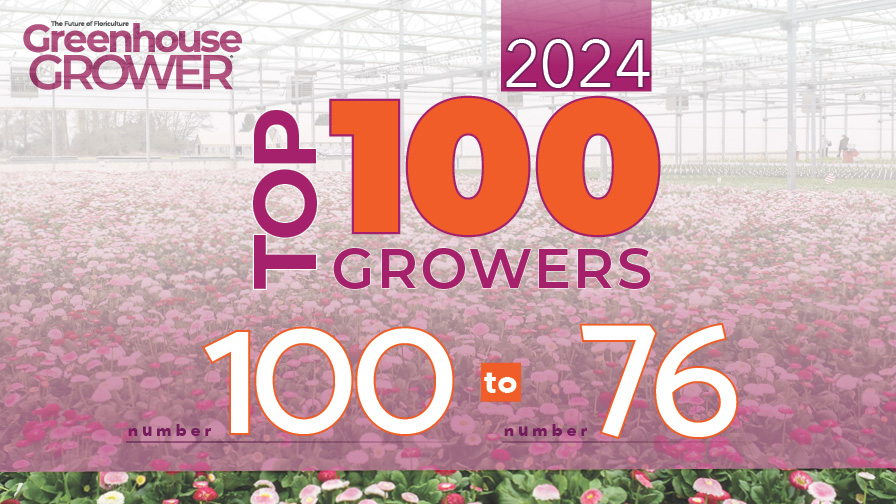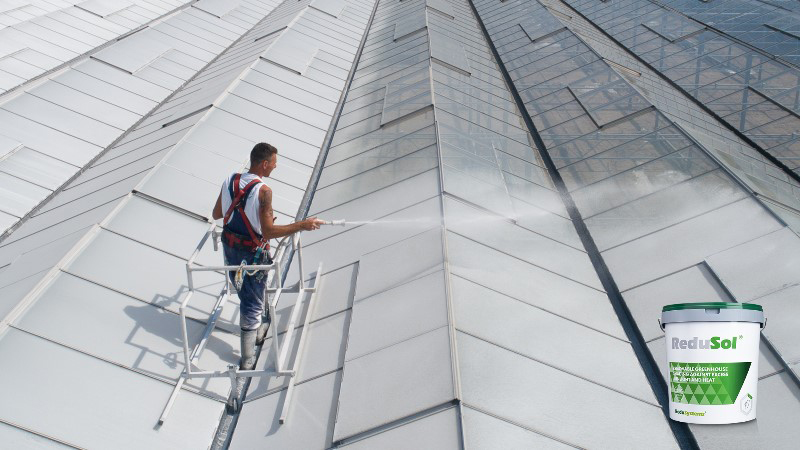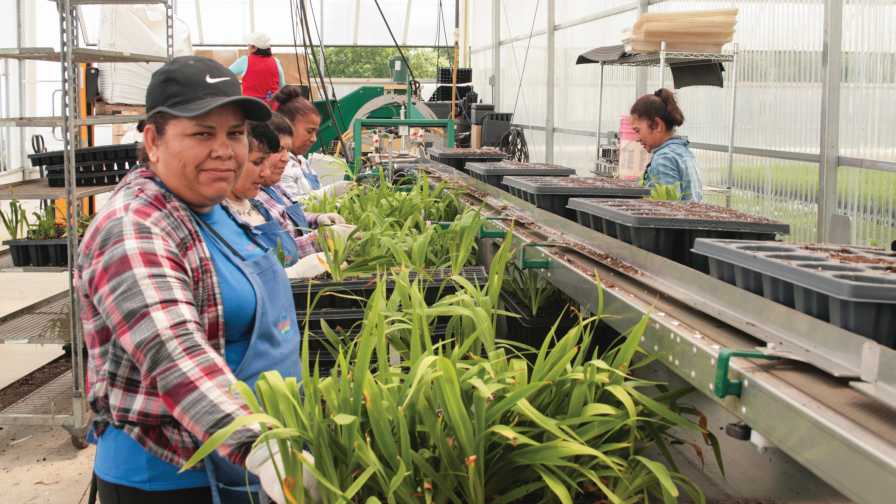GLASE Consortium’s New Executive Director Looks Forward to More Grower Partnerships and Resources
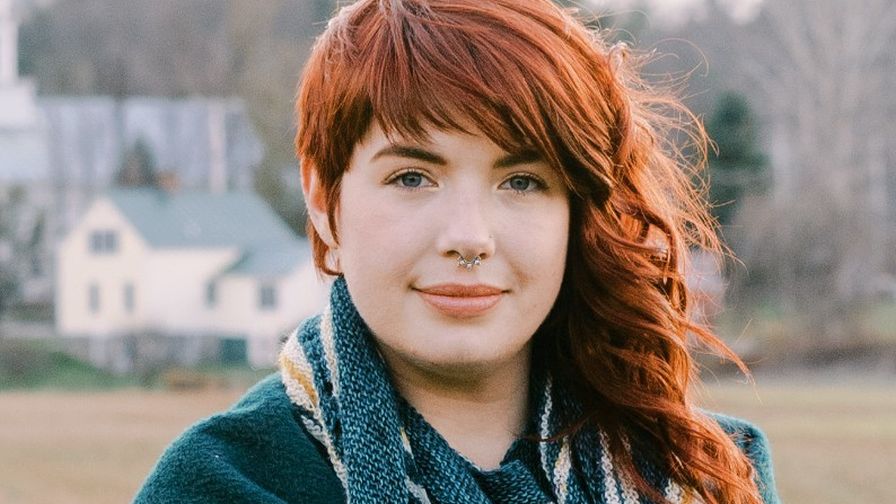 This past June, Gretchen Schimelpfenig became the Executive Director of the Greenhouse Lighting and Engineering Systems (GLASE) consortium, which was established in 2017 by Cornell University, Rensselaer Polytechnic Institute, and Rutgers University as a public-private partnership to merge academic research in lighting and greenhouse systems with manufacturer and grower expertise. GLASE is supported by funding from New York State Energy Research and Development Authority (NYSERDA) and 30 industry members.
This past June, Gretchen Schimelpfenig became the Executive Director of the Greenhouse Lighting and Engineering Systems (GLASE) consortium, which was established in 2017 by Cornell University, Rensselaer Polytechnic Institute, and Rutgers University as a public-private partnership to merge academic research in lighting and greenhouse systems with manufacturer and grower expertise. GLASE is supported by funding from New York State Energy Research and Development Authority (NYSERDA) and 30 industry members.
I caught up with Gretchen shortly before Cultivate’23 to learn more about how GLASE has progressed to this point, and where she hopes to take GLASE moving forward.
“Over the last five to six years, the major focus at GLASE has been on conducting research on lighting and automation systems and implementing technology transfer pilot projects at grower facilities to evaluate new products and technologies,” Schimelpfenig says.
Big Apple
“So far we’ve worked on two commercial pilot projects on facilities in New York State that are growing leafy greens and other vegetables, and a grant from USDA’s Specialty Crop Block Grant program is helping us add more facilities.”
All food, floriculture, and cannabis greenhouses in New York are welcome to participate, Schimelpfenig says.
“If you’re interested in having advanced lighting controls implemented in your greenhouse, we can do that with you,” she says.
Another project growers can participate in is the Greenhouse Benchmarking program. Greenhouses growing any crop can get free energy audits and benchmarking reports prepared by qualified professionals who visit your site to gather data (click here to learn how you can participate).
“Our goal for this program is to benchmark 80 greenhouses in New York in the next few years,” Schimelpfenig says.
Further Afield
Beyond these projects, Schimelpfenig says her goals as GLASE’s new Executive Director are to recruit new members and partners, increase and streamline GLASE’s educational curriculum, and secure new grant and member funding to help GLASE expand outside of New York. GLASE offers ten free webinars annually and has produced two affordable short courses on topics like horticultural lighting and greenhouse climate control. The 2024 short course is being planned for Thursdays in February and March.
“We’re not limited to New York State or even the U.S.; we want to go where the greenhouses are and help growers learn more about the different energy challenges they are facing,” she says.
Schimelpfenig’s past and current experience will play a vital role in helping to move GLASE forward. Aside from her role at GLASE, she is a Senior Energy Engineer at Energy Resources Integration (ERI), a clean energy consulting firm developing a sustainable future for our planet through cost-effective energy management. She has worked with more than 250 growers and researchers to optimize greenhouses and indoor farms through her emerging technology research, efficiency program implementation, and consultation with growers across North America. She is also the former Technical Director of Resource Innovation Institute (RII).
“We don’t have a lot of high-tech facilities here in Vermont, but while at an energy efficiency utility in Burlington, VT, I started recognizing the energy impacts of growing plants indoors,” she says. “I collaborated with Efficiency Vermont to pioneer the state’s first LED grow light rebate program for both home growers and commercial businesses, and have supported growers across the state in adopting energy efficiency practices since 2018.”
A Systems Approach
Schimelpfenig notes the GLASE program isn’t just about lighting.
“While GLASE is and always will be focused on lighting and lighting controls, the ‘S’ in GLASE stands for systems,” Schimelpfenig says. “I think that expanding our mission to include greenhouse coverings, curtains, and HVAC systems is going to be important for us to be part of the climate-smart revolution of CEA.”
Looking ahead, Schimelpfenig says on a personal level, she is excited about the fact that LED lighting is becoming more and more mainstream today, perhaps even an industry standard.
“It’s not there yet in some places, but in the time since GLASE’s inception, I think we’ve seen a lot of change of heart in LED attitudes and adoption rates,” she says. “I think that’s great because it shows the research that we’ve done across the country and across the industry has made a great difference.”
Learn More From GLASE
- GLASE’s 2023 Summit will focus on greenhouse energy resilience. The summit, which takes place Oct. 25 in Leamington, ON, Canada, will tackle profitability in a world of increasing energy prices. Learn more here.
- The GLASE Consortium Webinar Series features the latest technological innovations and best practices in the CEA field, providing the audience the opportunity to discover new solutions and to connect with field experts. Get caught up on past webinars, and learn more about upcoming presentations, here.




